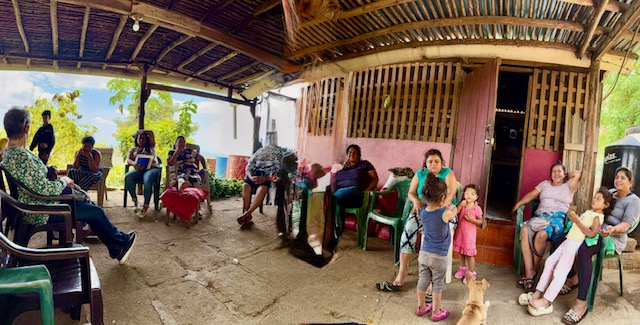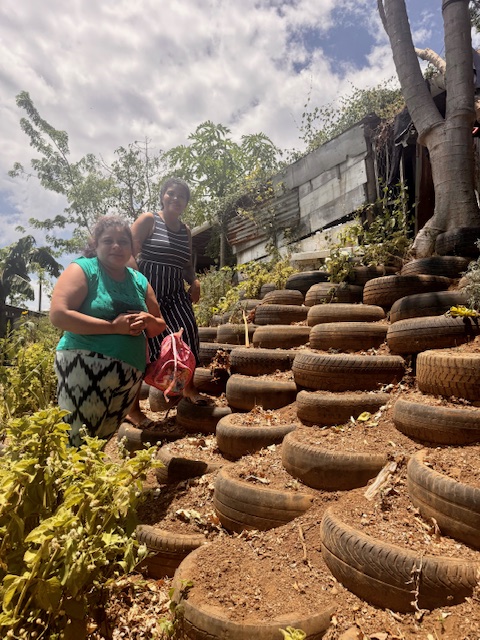Nicaragua: The Women of Santa Julia — A Journey of Empowerment
Tucked into the steep hillsides of El Crucero, less than an hour from Managua, lies the resilient community of Santa Julia. But despite its geographic proximity to the capital, it feels like a world away. With no buses and only a rough, dusty road etched into the mountainside, reaching Santa Julia is a challenge — especially in the rainy season, when that same road becomes a fast-flowing riverbed, cutting the community off.
 Seventeen years ago, these women had almost nothing. No running water. No latrines. No electricity. Many lived in substandard housing. No schools. Literacy was low. Domestic violence was high. Fear and silence shaped their daily lives. But they knew something had to change — and they knew they had to do it together.
Seventeen years ago, these women had almost nothing. No running water. No latrines. No electricity. Many lived in substandard housing. No schools. Literacy was low. Domestic violence was high. Fear and silence shaped their daily lives. But they knew something had to change — and they knew they had to do it together.And they did. Today, their lives are profoundly different. As one woman, Lea, proudly shared, they are now “holistically empowered.” They have access to clean water and electricity. Most have decent homes and proper sanitation. They’ve learned to read and write, and the cooperative has its own bank account. But perhaps most importantly, these women have discovered their voices — and are using them. Several years of gender training have been transformative. Women are now leaders in their homes and their communities. Land, once solely in the hands of men, is now shared. Women have legal title to their own plots.One woman, Maria Elena, told us a powerful and painful story. Her mother suffered domestic abuse, and so did she — until she joined the cooperative. “Everything changed,” she said. Gender training gave her the tools and confidence to stand up and step forward. Today, she is not only safe, but she is also a community leader.The women of Santa Julia are also transforming the land. What was once barely cultivated now yields a wide variety of crops — all grown on the steep, rugged mountainsides. They began by clearing the land themselves, and now they farm it against all odds, defying the terrain and every obstacle in their path. The terrain
The terrain  Some of the products they grow
Some of the products they grow
Is everything perfect? Of course not. There are still challenges, and their needs remain great. But now, these women are equipped, organized, and empowered. They’ve proven they can create real change — and with continued support, there’s no telling how far they’ll go.